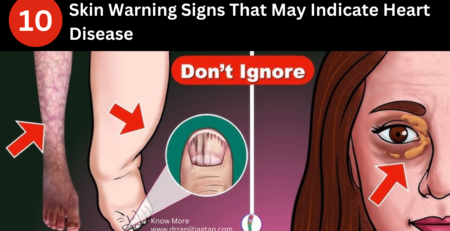Do You Know the Truth About Heart Health and Genetics?
Heart health has always been an issue among many, with the increasing cases of heart-related diseases. Have you ever tried to consider how much hereditary your heart health is? Lifestyle factors like diet, exercise, and stress management do make a difference in preventing these diseases. Genetics can also act as a contributor to one’s risk for heart disease.
This blog will analyze the genetics of heart health and the family history effects on cardiovascular wellness. The best cardiologists in Pune are now providing services for all those looking for expert advice and advanced treatments to monitor their heart health.
Understanding the Link Between Genetics and Heart Health Development
Genetic predisposition plays a very important role, in showing whether an individual is at risk of genetic heart disease or not. Some genetic factors, such as high cholesterol, high blood pressure, and arrhythmias, are inherited and thus make the sufferer more prone to such problems. Genetics means that the individual may not come up with heart disease. But the possibility increases.
This means that a person with a strong family history of heart attack or stroke has potentially increased chances of having such problems. Genetic testing and consultation with a competent cardiologist in Pune would be the best option to estimate your risk and preventive measures put in place.
Medical conditions related to the heart that have a hereditary pattern include:
Coronary Artery Disease (CAD): This hereditary ailment quickly transforms into a heart attack because CAD has the potential to transfer genetically. Such types of genetic variation can give a predisposition to blockage of coronary arteries, thereby decreasing the blood supply to the heart.
Hypertrophic Cardiomyopathy (HCM): It is a kind of ethnic disease that refers to the thickening of the heart muscles. It leads to blockage in the flow of blood and at times produces arrhythmia. Usually hereditary, timely intervention through periodic tests could be important in cardiology patients.
Arrhythmias: Irregular heart rhythm may occur due to genetic disorders like atrial fibrillation. This may be due to electrical disturbance/blockage due to mutation in the genes and can put a person at a higher risk of stroke or at least palpitations.
Aortic Aneurysms: It is considered an aortic aneurysms when the wall of the aorta is restricted and it swells. It has a collision with genetic predisposition associated with it and may require some procedure to manage the symptoms, such as aortic aneurysm surgery in Pune.
Minimizing Genetic Risk?
People cannot change their genetics; however, minimizing the effects of those genes on the heart in specific cases is possible. Regular checkups with a cardiologist early enough in life may identify certain genetic predispositions before they pose significant problems. Lifestyle changes, workouts, and stress management reduce overall risk.
To ensure that you avail of timely alerts and possible advanced cardiology treatments in Pune, cardiology treatments should help you in case of such kind of risk or advance. Therapy could be of various types, such as medication and lifestyle counseling to a Cardiologist.
Treatments to Better Heart Health; One of India’s finest locations for the best heart hospital in Mumbai. Routine checkups or more specialized interventions both, such treatments offer to take control of one’s heart health. Prevention and complex surgery, everything from heart care is offered by a Cardiologist.
FAQs
1. Is heart disease hereditary?
Yes, certain heart diseases like coronary artery disease and hypertrophic cardiomyopathy run in families. A family history can elevate the risk, but this does not mean one will have heart disease.
2. Is it genetic heart disease?
Talk to a cardiologist. Such things as family history and genetic counseling are certainly part of a comprehensive evaluation for determining risk.
3. Which lifestyle changes can be made to help reduce the risk of developing heart disease?
Here, it is eating well, staying active, reducing stress, and avoiding smoking. All will help even in people with an inherited predisposition to heart disease.
4. Is aortic aneurysm surgery common?
Aortic aneurysm surgery is recommended usually when the size of the aneurysm is considerable or when the aneurysm is increasing in size rapidly. There are many advanced cardiology centers in Pune within one’s reach that are possible to provide minimally invasive surgery for the treatment of aortic aneurysms.
5. How many days should I go to the cardiologist?
With a family history of heart disease or other predispositions for heart disease, you should visit a Heart Surgery Hospital in Mumbai often. The best would be annually or more at a visit for early detection/prevention, according to your health condition.
Conclusion
It is necessary to understand the relationship between the heart and inheritance to help you cope with your cardiovascular health. Medical recommendations are availed from cardiologists, coupled with advanced treatment options such as aortic aneurysm surgery that will arrest any genetic risks concerning cardiovascular health. Cavities and regular healthy living go a long way toward preventing heart disease.
If you are worried about your heart and family history, you should consult a trusted cardiologist. Take the next step toward a healthier heart with advanced cardiology treatments in Pune.





